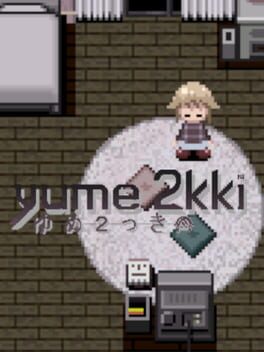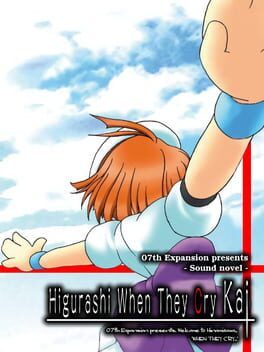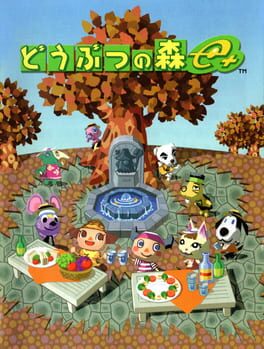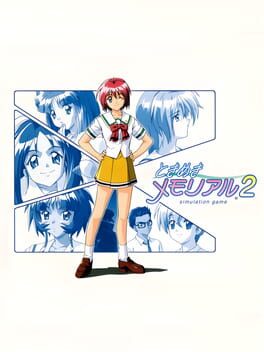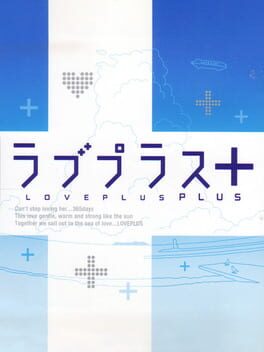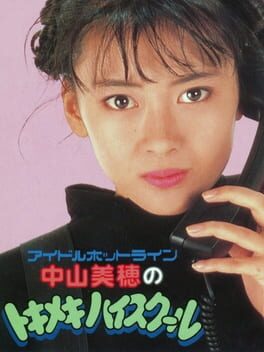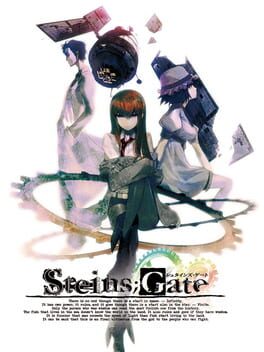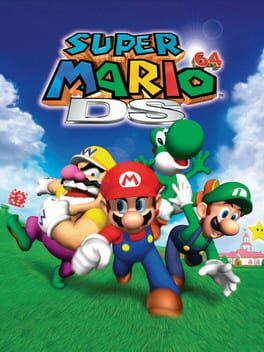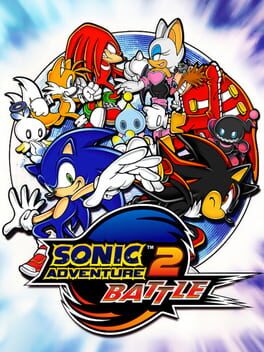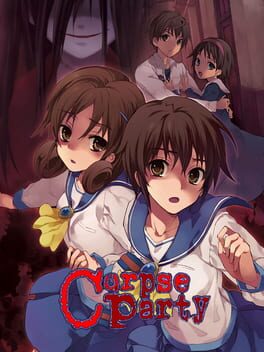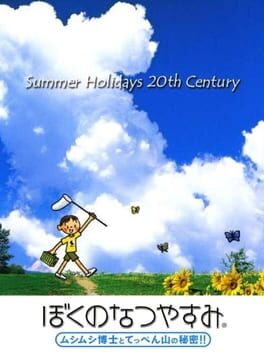halfclovers
Bio
Hi i like rpgs, life sims and surrealist games. My favorite series are Megami Tensei and Touhou Project.
My reviews are generally a mix between critical recommendation and my own experience, while ratings are entirely personal enjoyment.
he/they
eng/jpn
Hi i like rpgs, life sims and surrealist games. My favorite series are Megami Tensei and Touhou Project.
My reviews are generally a mix between critical recommendation and my own experience, while ratings are entirely personal enjoyment.
he/they
eng/jpn
Badges

Popular
Gained 15+ followers

Liked
Gained 10+ total review likes

GOTY '23
Participated in the 2023 Game of the Year Event

Best Friends
Become mutual friends with at least 3 others

Noticed
Gained 3+ followers

Gamer
Played 250+ games

N00b
Played 100+ games

Busy Day
Journaled 5+ games in a single day
Favorite Games
436
Total Games Played
023
Played in 2024
011
Games Backloggd
Recently Played See More
Recently Reviewed See More
Corpse Party is responsible for introducing so many people to the world of RPG Maker and how it can be utilized in the creation of horror games. I can only imagine the amount of creators inspired, directly and indirectly, by this game to create their own horror games in the engine, and I think that’s a great thing. That is where Corpse Party’s merit as a game and a work of art ends.
For a survival horror game, Corpse Party has absolutely nothing to fear. While the abandoned, falling apart school might create a decent enough atmosphere, and the sound design is pretty effective, the vast majority of the game’s horror relies on shock and the repulsive: the corpses of dead children littered throughout hallways, buckets of maggots, literal piles of gore, but the threats that are actually within the school are comparatively pathetic. The few chase scenes here are genuinely hilarious, with virtually every enemy crawling at a snail’s pace while just yelling the character’s name. Actually, a lot of the horror is outright hilarious. There’s a scene in chapter 4 of a man throwing himself off of a roof repeatedly in the goofiest way possible, which had me cackling. Nothing to actually fear though, and the unintentional comedy isn’t frequent or good enough to turn this into “so bad it’s good”.
Any gameplay is an absolute chore. Most of the game is spent wandering aimlessly around the school’s hallways, with (again) no threats to speak of, and little direction to go off of. The school itself is far too big to warrant this directionless feeling, so it’s hard not to just rely on a guide while playing, just to get through these sections as quickly as possible. I’ve already spoken about the pathetic chase scenes, but there are also “puzzles” I haven’t mentioned yet, the highlights of which include following a ghost’s movements Simon Says style, saving someone from drowning by going to the exact tile the game tells you to go to, or picking up a teleporting item by having one character go to one half of the classroom, while another character goes to the other half, something the creators were so proud of that they repeated it like three or four times. Nothing here involves any sort of thinking beyond memorization, and it, again, leads to a lack of any horror, as the game just feels like an aimless haunted house.
Plot and characterization are just a big pile of nothing as well. The plot isn’t offensively bad, but pretty much any other Japanese curse story you can think of does everything here, except probably better. At least you can count on those stories having more interesting characters. I love video game stories featuring revolving protagonists, so I was initially excited to see where things would go, but all of these characters feel like they were just pulled from a mediocre Weekly Shonen Jump manga. As of my writing of this review, I’ve reached the final save point of the game, but haven’t actually finished it, so I will update things if the ending changes my mind (update: it didn’t), but for all of the mediocre gameplay I’ve experienced in so many RPG Maker games, at least those have interesting set ups, characters, and/or theming. Corpse Party is nothing.
To be honest, this is probably the type of game I would’ve loved if I played it as a teenager (I still have a soft spot for Misao, for example, which is basically a bootleg version of this game), but I can’t help but feel like Corpse Party is worthless in 2023. With the tropey characters featuring nothing to make them stand out, the unintentional comedy of the horror, and little details like the panty shots within otherwise serious scenes, Corpse Party’s standout feature is that it feels like a parody of itself. If you want a great Japanese survival horror game revolving around ghosts and a curse, check out Fatal Frame II. Actually, just check out Ao Oni, The Witch’s House, Utaho no Tatari, or even Misao, as these games are stronger indicators of the originality that comes out of RPG Maker (they’re also free, unlike this one). For all of the talk around Corpse Party, including its legacy and its being milked by larger companies over the years, I don’t see this game get recommended anymore as an actual video game, while I still see so many other RPG Maker horror games getting praise to this day. Playing it, it’s easy to see why, and while it might be interesting for those who like these games to go back to it, to see where things figuratively got started, I honestly think it’s better if we just let Corpse Party remain in the past, and let its legacy live on.
For a survival horror game, Corpse Party has absolutely nothing to fear. While the abandoned, falling apart school might create a decent enough atmosphere, and the sound design is pretty effective, the vast majority of the game’s horror relies on shock and the repulsive: the corpses of dead children littered throughout hallways, buckets of maggots, literal piles of gore, but the threats that are actually within the school are comparatively pathetic. The few chase scenes here are genuinely hilarious, with virtually every enemy crawling at a snail’s pace while just yelling the character’s name. Actually, a lot of the horror is outright hilarious. There’s a scene in chapter 4 of a man throwing himself off of a roof repeatedly in the goofiest way possible, which had me cackling. Nothing to actually fear though, and the unintentional comedy isn’t frequent or good enough to turn this into “so bad it’s good”.
Any gameplay is an absolute chore. Most of the game is spent wandering aimlessly around the school’s hallways, with (again) no threats to speak of, and little direction to go off of. The school itself is far too big to warrant this directionless feeling, so it’s hard not to just rely on a guide while playing, just to get through these sections as quickly as possible. I’ve already spoken about the pathetic chase scenes, but there are also “puzzles” I haven’t mentioned yet, the highlights of which include following a ghost’s movements Simon Says style, saving someone from drowning by going to the exact tile the game tells you to go to, or picking up a teleporting item by having one character go to one half of the classroom, while another character goes to the other half, something the creators were so proud of that they repeated it like three or four times. Nothing here involves any sort of thinking beyond memorization, and it, again, leads to a lack of any horror, as the game just feels like an aimless haunted house.
Plot and characterization are just a big pile of nothing as well. The plot isn’t offensively bad, but pretty much any other Japanese curse story you can think of does everything here, except probably better. At least you can count on those stories having more interesting characters. I love video game stories featuring revolving protagonists, so I was initially excited to see where things would go, but all of these characters feel like they were just pulled from a mediocre Weekly Shonen Jump manga. As of my writing of this review, I’ve reached the final save point of the game, but haven’t actually finished it, so I will update things if the ending changes my mind (update: it didn’t), but for all of the mediocre gameplay I’ve experienced in so many RPG Maker games, at least those have interesting set ups, characters, and/or theming. Corpse Party is nothing.
To be honest, this is probably the type of game I would’ve loved if I played it as a teenager (I still have a soft spot for Misao, for example, which is basically a bootleg version of this game), but I can’t help but feel like Corpse Party is worthless in 2023. With the tropey characters featuring nothing to make them stand out, the unintentional comedy of the horror, and little details like the panty shots within otherwise serious scenes, Corpse Party’s standout feature is that it feels like a parody of itself. If you want a great Japanese survival horror game revolving around ghosts and a curse, check out Fatal Frame II. Actually, just check out Ao Oni, The Witch’s House, Utaho no Tatari, or even Misao, as these games are stronger indicators of the originality that comes out of RPG Maker (they’re also free, unlike this one). For all of the talk around Corpse Party, including its legacy and its being milked by larger companies over the years, I don’t see this game get recommended anymore as an actual video game, while I still see so many other RPG Maker horror games getting praise to this day. Playing it, it’s easy to see why, and while it might be interesting for those who like these games to go back to it, to see where things figuratively got started, I honestly think it’s better if we just let Corpse Party remain in the past, and let its legacy live on.
Aside from the obvious language barrier, Bokunatsu really is a must play for any fan of life simulators. There's some jank to be found, particularly in its bug catching and fishing minigames, and the game isn't flooding with content like others in the genre, but its relative simplicity works so well to its advantage. You're never going to find a million different things to do everyday like in an Animal Crossing game, but there's always at least something new to find, and its those moments, witnessing Boku's discoveries and reporting on them in his nightly journal that make everything here feel so special.
Besides, what defined Bokunatsu for me, more than anything, was its characters. It's why I can't really recommend this game at all to anyone without at least beginner-level Japanese reading; you'd miss out on so much of the best content by not understanding the dialogue. Every character is really easy to like, but the Sorano family in particular really resonated with me. Maybe its just because the family feels far more human than most video game characters, but I found it really easy to get emotional during certain moments (the scene between Boku and his aunt when the former gets sick was particularly excellent). Despite its fun and cartoony art style, Boku is more bittersweet than anything, and it honestly did hurt a little seeing the credits roll.
Nostalgia is Boku no Natsuyasumi's most prevalent theme, and a major point of discussion regarding the game. The scenario presented in Boku isn't something I related to at all initially, but I honestly think there's at least something that anyone who has experienced summer vacation can relate to, whether it's catching the biggest fish in the lake, screwing around with the neighborhood delinquents, or even just witnessing a rainbow after a summer shower. For me, it was those increasingly common moments of Boku and his older cousin sitting and talking under the night sky. Even if I forget everything else about this game, that's an image that's going to stay with me, because it hit so close to home.
Fantastic game. The love for it is well deserved, and it's an easy recommend for anyone with a decent understanding of Japanese. Playthroughs are rather short at around 12 hours long, and the game is really easy to pick up for a bit, then set down for a few months without forgetting anything (my own playthrough took roughly six months). It was also refreshing to play something where 100% completion didn't even feel like an option; a game where it was actively okay to miss out on major points of content. It makes Boku no Natsuyasumi not only a fantastic playthrough, but something worth coming back to.
Besides, what defined Bokunatsu for me, more than anything, was its characters. It's why I can't really recommend this game at all to anyone without at least beginner-level Japanese reading; you'd miss out on so much of the best content by not understanding the dialogue. Every character is really easy to like, but the Sorano family in particular really resonated with me. Maybe its just because the family feels far more human than most video game characters, but I found it really easy to get emotional during certain moments (the scene between Boku and his aunt when the former gets sick was particularly excellent). Despite its fun and cartoony art style, Boku is more bittersweet than anything, and it honestly did hurt a little seeing the credits roll.
Nostalgia is Boku no Natsuyasumi's most prevalent theme, and a major point of discussion regarding the game. The scenario presented in Boku isn't something I related to at all initially, but I honestly think there's at least something that anyone who has experienced summer vacation can relate to, whether it's catching the biggest fish in the lake, screwing around with the neighborhood delinquents, or even just witnessing a rainbow after a summer shower. For me, it was those increasingly common moments of Boku and his older cousin sitting and talking under the night sky. Even if I forget everything else about this game, that's an image that's going to stay with me, because it hit so close to home.
Fantastic game. The love for it is well deserved, and it's an easy recommend for anyone with a decent understanding of Japanese. Playthroughs are rather short at around 12 hours long, and the game is really easy to pick up for a bit, then set down for a few months without forgetting anything (my own playthrough took roughly six months). It was also refreshing to play something where 100% completion didn't even feel like an option; a game where it was actively okay to miss out on major points of content. It makes Boku no Natsuyasumi not only a fantastic playthrough, but something worth coming back to.

